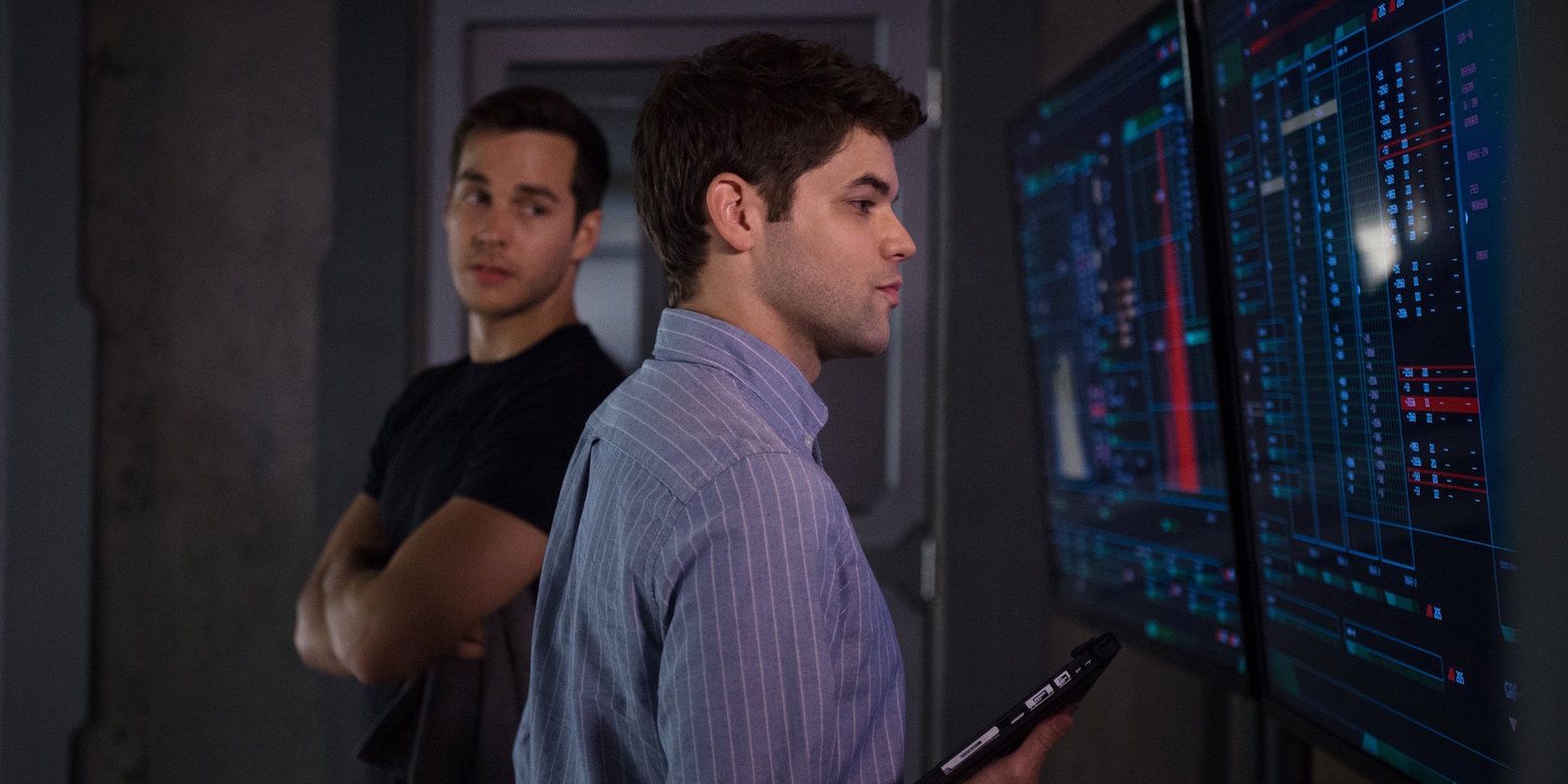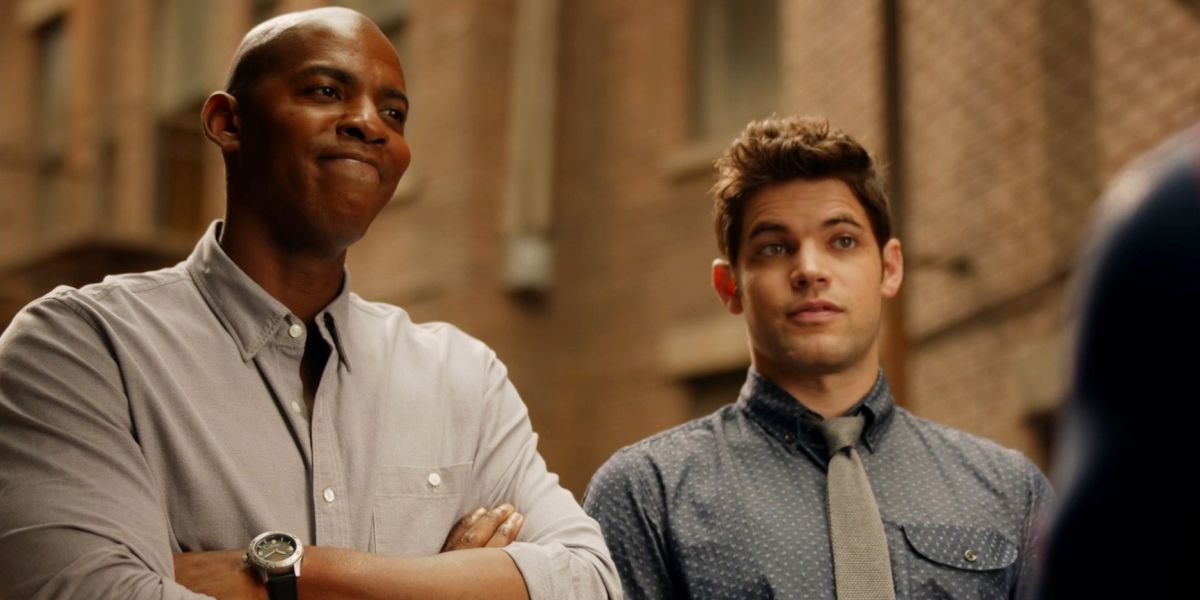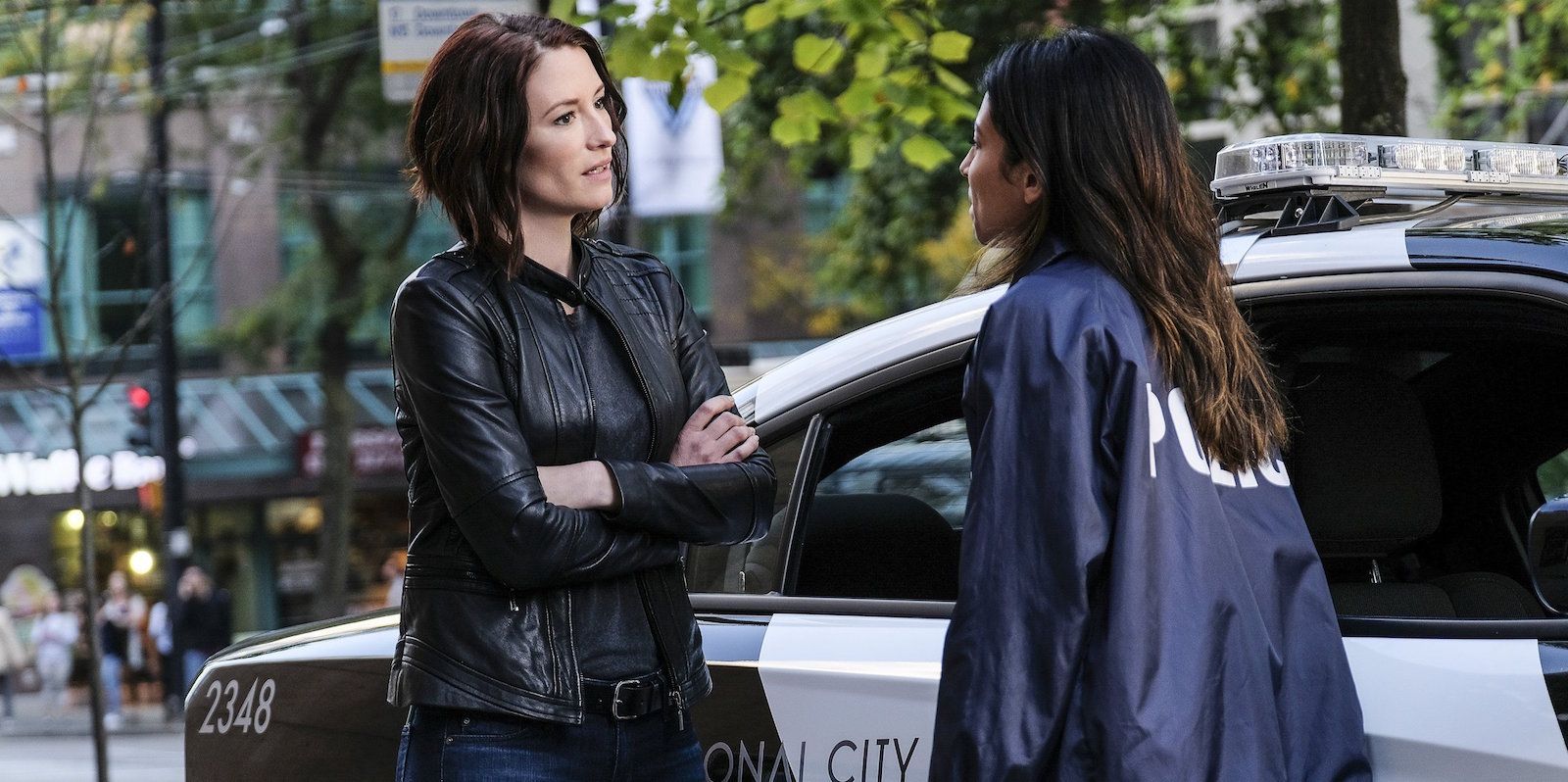The worst kept secret in the Arrowverse finally broke open for the person it had been best hidden from... who also happened to be the one keeping it: Kara Zor-El's adopted sister Alex Danvers at last confronted her attraction to newfound pal Detective Maggie Sawyer, stopping short of giving her feelings a name but leaving little doubt as to what she's discovered about herself. But that was only the most prominent of several new potential relationships (romantic, familial and otherwise) taking their first steps in Supergirl's fifth season 2 episode, "Crossfire."
It's sometimes said that the only way to tolerate superhero storylines long-term is to occasionally remind yourself that most of these characters weren't just originally written for an audience of children, they're best understood in terms of effectively being children themselves. That maxim holds quite true for Supergirl, whose titular protagonist's famous "Why not Super-Woman!?" argument from Season 1 turned out to be a deft lampshading of a series that often runs on a conceit of its ostensibly "adult" characters all having neglected to grow emotionally past the age of twelve (with the exception of David Harewood's grouchy Martian Manhunter, whose obvious exasperation at being surrounded by overgrown 'tweens often makes him the series de-facto audience POV character).
To wit: The main storyline of "Crossfire" once again found Kara having to learn a lesson about navigating the world and interpersonal relationships that most folks would, hopefully, have absorbed before voting age. Having been tasked with aiding fellow super-powered alien refugee Mon-El (Chris Wood) integrate into human society, she fumbles spectacularly by wrongly assuming that adopting a variation of her and Cousin Clark's lifestyle choices - complete with "adorkable" under-the-radar civilian guise, day job and identity-concealing glasses - is something that he A) is capable of and B) wants in the first place. Spoiler: He's not.
This is, of course, a problem that would've been solved by simply asking him a few basic questions before assuming he'd acquiesce to, essentially, being her life-sized Superboy dress-up doll; but "terrible at everything except being Supergirl" is by now practically Kara's defining character trait. By contrast, Mon-El (or, rather, "Mike") might be a little too good at everything: Supergirl's gimmick for this version of the character is that Daxam was essentially "planet fratboy," and Mon-El's naturally super-confident swagger enables him to slack off at work thanks to a thoroughly seduced Miss Tessmacher, and even momentarily sweep Kara onto the dance floor when they both attend Lena Luthor's fancy dress party later.
The audience is clearly meant to intuit the super-buddies as a prospective super-couple, starting with an opening scene showing off how agreeably they co-habitate and continuing into the implicit issue of them each being (potentially) the only being on the planet the other could conceivably be intimate with without raising serious safety concerns. When Kara interrupts "Mike's" attempted office liaison with Miss Tessmacher, it's unclear whether she's jealous or trying to prevent him from accidentally maiming her.
Whether or not Kara and Mon-El are meant to be a pair (or even give it a shot) in the grand scheme of the series, the possibility has more than occurred to James Olsen and Winn Schott, who find themselves newly-united as non-superhumans who pursued Kara only to end up as "just friends." The pair bond while watching wistfully as "Mike" effortlessly twirls their mutual Super-crush onto the dance floor because, yes, National City is essentially a giant middle school where Kara is everybody's unrequited Homeroom Angel.
Olsen and Schott are another new pairing in "Crossfire" - not a romantic one (though Tumblr will almost certainly have other opinions on the matter), but a long-term setup all the same. The episode's obligatory action storyline about CADMUS hiring a trio of random thugs to commit crimes with alien weaponry and stir up anti-amnesty sentiment is what nudges James toward adopting a superhero identity of his own with Winn as his co-conspirator. A brief gadget-fixing encounter also teases the prospect of Winn as a foil for Lena Luthor - with whom he'd notably share the experience of being the relative of a notorious supervillain.
For now, Lena Luthor's main relationship on the series is with Kara and Supergirl, whom she's befriended without (as far as we know) recognizing that they're the same person. Lena also turns out to have mainly been onhand for season 2's first big gotcha: When her meeting with Lena is interrupted by a visit from the mystery woman she recognizes as the leader of CADMUS, Supergirl makes a discreet exit... and in doing so manages to miss out on hearing Lena call her "Mom." While Lena's motives will still remain mysterious, it appears Supergirl has been hiding a second "Female Luthor" villain in plain sight this whole time.
Nonetheless, in an episode all about new potential relationships taking shape, it was Alex and Maggie whose story took center stage and was allowed to play out with as close as Supergirl gets to grown-up weight and depth. That the two were destined to be a pair has been apparent since Detective Sawyer's introduction, and the show has teased out their attraction by having their joint-investigations take the form of date-like outings and a recurring gag of Alex "innocently" suggesting a friendly outing only for Maggie to reveal she has more intimate prior engagements. But it still felt like a big deal for Maggie to finally flat-out ask if Alex was making a move on her by getting extra-friendly after discovering she'd broken up with her girlfriend.
Granted, a female/female romance story revolving around a character whose own sexuality has never occurred to her until meeting what appears to be her first openly gay female friend is the definition of a tired trope when it comes to same-sex relationships on TV. So it's all the more refreshing that Supergirl opts to make this the place where "Crossfire" get's to be a little more real - though still operating within the series' tonal aesthetic of teen-level angst. The scene where Alex comes out to Maggie sidesteps the usual "lovestruck princess pours girlish heart out to jaded cynic" setup usually employed in such scenarios, instead letting the elder Danvers sister gently stammer her way to a quietly wrenching admission: Ever the self-denying perfectionist, she'd come to assume that her inability (thus far) to enjoy physical intimacy was some kind of failing or flaw on her part.
Where things go from there is anybody's guess. Judging by Supergirl's social media buzz, a sizable portion of the series' fanbase has been eager for Alex and Maggie to get to this point; but one now imagines that (assuming they do end up as an item) that eagerness will turn to worry that the couple will be doomed from the outset. The Arrowverse likes to kill off tertiary characters and end happy relationships to drive drama, and the tendency of TV series to kill off LGBT figures in particular has been the subject of criticism this past year especially.
For now, Supergirl has found an important human story to tell amid all the superheroics; which comes with rewards but also challenges. Tasked with being equally heroic to her sister without the benefit of powers (or wide-eyed sunny optimism), Alex Danvers has been a fan-favorite character since season 1 and now she's likely to be tagged as a "role model" for underrepresented viewers. Plenty of series (and characters) have buckled under the weight of those sort of expectations, and it should prove interesting to see how Supergirl will shoulder this new weight.
Supergirl airs Mondays on The CW.




